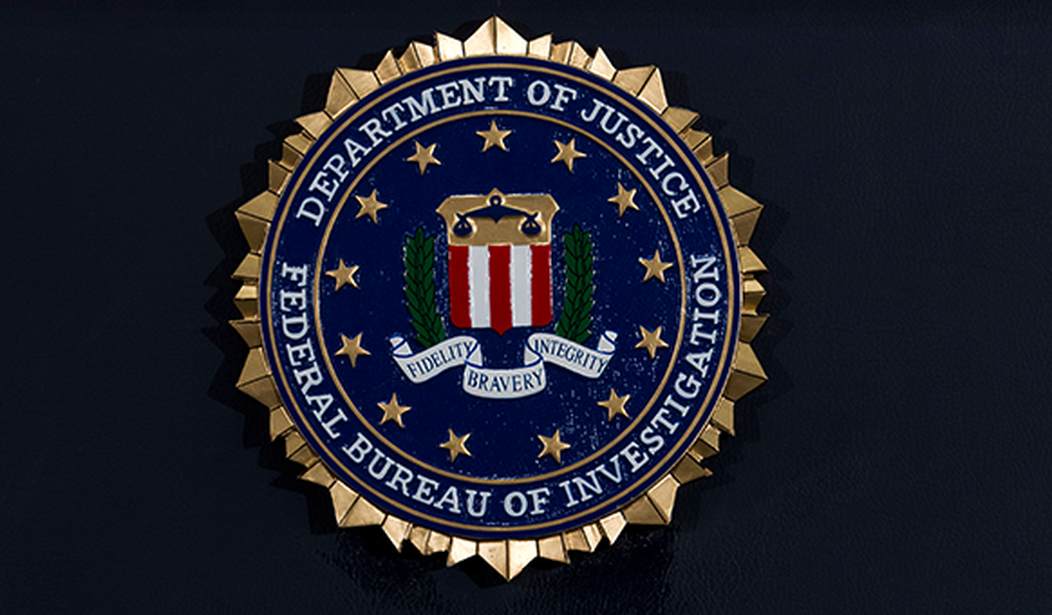The self-described “true believer” Islamist terrorist organizations are planning to conduct the next large-scale attack here in America. They seek to slaughter not hundreds but hundreds of thousands of Americans. To succeed, they must coordinate the attack by communicating with their agents.
Our Constitution is not a suicide pact; the Framers did not extend its Bill of Rights protections to foreign enemies. Yet in his book, Skating on Stilts, Why We Aren’t Stopping Tomorrow’s Terrorism, Stewart Baker masterfully recounts that the Department of Justice’s “above legal requirements” intelligence “sharing” policy became an impenetrable wall, by order of the FISA court’s chief judge, six months before 9/11.
And never forget that 3,000 men, women, and children were murdered after it was built.
Yet some well-intentioned libertarians, conservatives, and – to borrow from General MacArthur – others of an entirely different character in Congress, want to implement similarly reckless policies. They want Section 702 of the Foreign Intelligence Surveillance Act to sunset at the end of this month, or amended to require a warrant before any query is conducted.
The “rub” occurs when the FBI receives information that suggests US persons (Americans anywhere and anyone here) may be acting as an agent of a foreign adversary. The FBI must act swiftly to find the few among the many who are conspiring with foreign enemies. To do so, it queries the holdings (the communications data collected while monitoring non-Americans abroad) to rapidly determine if the data indicates US persons are key players in plots before they can attack. In addition, the FBI conducts warrantless queries during cyberattacks to identify victims and the attacker’s next targets.
Recommended
702 was enacted into law to deal with those contingencies. And, in addition to the FISA court, three separate federal Courts of Appeal have ruled such warrantless queries are Constitutional.
Requiring a warrant before those preliminary queries are conducted or letting 702 expire would become a national security disaster; the US person agents communicating with foreign adversaries would go unmonitored while the FBI generated thousands of pages of FISA warrant requests. Requiring warrants for preliminary queries would indeed be akin to building another intelligence “sharing” wall.
What detractors also don’t mention is 702 already requires that a FISA court judge issue an order (a warrant, in effect) when there is an open criminal investigation before the FBI can query the held intelligence data. Further, an order must be obtained before the FBI begins ‘wiretap’ surveillance of US persons during purely intelligence investigations.
The effects of the first intelligence wall
On June 11, 2001, the CIA withheld USS Cole bombing information from the FBI.
Then, just three weeks before 9/11, the CIA finally informed FBI headquarters that two men (future 9/11 hijackers Khalid al-Mihdhar and Nawaf al-Hazmi) were here in America and had connections to the bombings of the Cole and our embassies in Africa. HQs sent an alert to the understaffed intelligence investigations office at its NYC field office; its I-49 Squad was tasked with investigating al Qaeda.
In fact, that FBI intelligence office was manned by one inexperienced agent who had transferred to NYC two weeks earlier from another field office. He shared the alert with his boss, the field office’s temporary supervisor who, in turn, shared it with criminal investigators of the aforementioned bombings. (John O’Neill had recently retired from the FBI and been hired as head of security for the World Trade Center.)
Stewart Baker explained the temporary supervisor’s reasoning:
"The team investigating the Cole bombing was already up and running. It had resources and manpower. ... criminal investigators could devote more agents to the search. The criminal investigators ... could use grand jury subpoenas and other law enforcement tools that were far quicker than those available to the intelligence side of the Bureau. They had all the resources they needed inside the United States. The intelligence guys didn't."
But the alert contained information collected by the NSA obtained from FISA wiretaps. And the NSA had implemented its own caveat to the wall: Information from wiretaps “could not be shared with law enforcement unless special permission had been granted,” meaning, getting approval from a FISA judge.
The FBI’s general counsel's office at headquarters soon learned the supervisor had shared the alert and what his plan was. It ruled that the FISA court order had been violated and directed that the search would be done only by the “intelligence arm of the bureau.” And it ordered the supervisor to destroy all copies of the alert; criminal investigators were barred from the investigation.
One intelligence agent was, as Baker put it, “still looking when September 11 dawned, bright and crisp.”
Congress should continue to aggressively conduct oversight to ensure FBI Director Wray’s compliance policies are working. Approving increases to the FBI’s budget requests should be made contingent on it maintaining a near-perfect rating. And anyone in our government who queries intelligence holdings solely for personal use should spend years in a federal prison.
The next large-scale terrorist attack upon America is in the making. The lights are again blinking red.
Let’s not build another intelligence “sharing” wall. Let’s not make that same reckless mistake twice.

























Join the conversation as a VIP Member